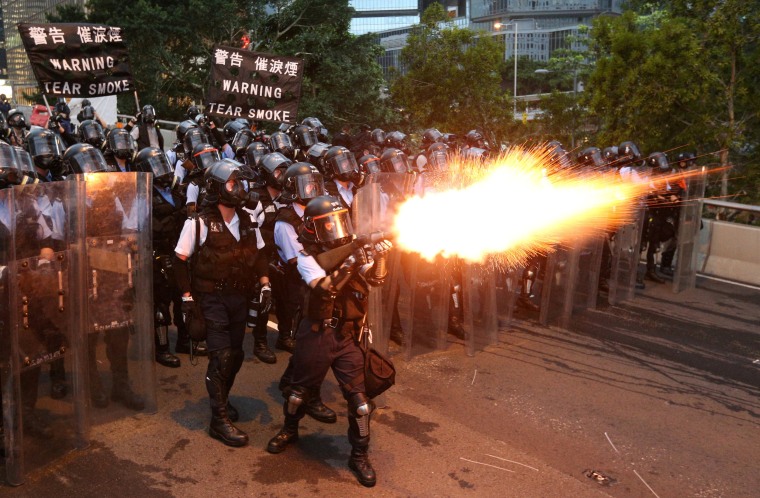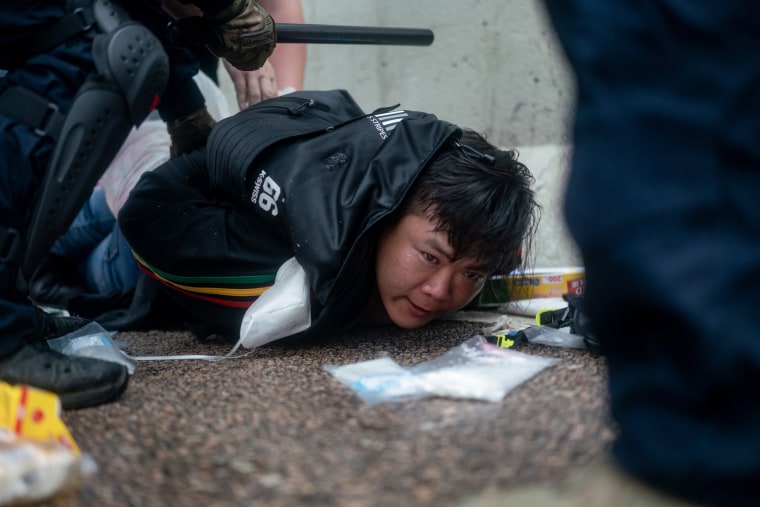At least 72 people were injured and rushed to Hong Kong hospitals in the wake of massive protests Wednesday over a bill that would allow extradition to mainland China, authorities said.
The wounded include 50 men and 22 women — with at least two of those injured in serious condition, according to the Hong Kong Hospital Authority.

Protesters and police clashed in some of the most densely populated neighborhoods of the island Wednesday night and into early Thursday morning, as Hong Kongers expressed their opposition to the bill they claimed would threaten the region's semi-autonomous rule.
Amnesty International blamed police, who fired tear gas and rubber bullets, for allegedly using a heavy hand in cracking down on protesters.
"The police have taken advantage of the violent acts of a small minority as a pretext to use excessive force against the vast majority of peaceful protesters," Amnesty International Hong Kong director Man-Kei Tam said.
Police action fueled "tensions and is likely to contribute to worsening violence, rather than end it," according to the local Amnesty International leader.

The protesters' presence appeared to secure at least a temporary victory. The government had been due to debate the extradition bill Wednesday, but with the masses gathered outside, legislators announced in the morning that discussions on the bill would be postponed "to a later time to be determined."
The law would allow suspected criminals to be extradited to mainland China, Taiwan and Macau. Supporters say it's necessary to stop Hong Kong from becoming a haven for fugitives, but critics argue it is the latest step in China's attempts to erode Hong Kong's freedoms, and making them subject to Beijing's murky legal system.
A former British colony, Hong Kong was returned to Chinese rule in 1997. This city of 7 million people has since been governed as a semi-autonomous region under the principle of "one country, two systems."
In theory, this should allow Hong Kong to retain the economic and administrative system that has allowed it to thrive as one of the world's leading business centers, and free from Beijing's interference until 2047.
However some see the extradition law, which is endorsed by Beijing and the government it supports in Hong Kong, as an example of Chinese President Xi Jinping's determination to crack down on dissent.
In a tearful interview with local broadcaster TVB, Hong Kong Chief Executive Carrie Lam said she and her family have made great personal sacrifices for Hong Kong and denied she's "selling out" the territory to Beijing.
"They said I'm selling out Hong Kong," Lam sad. "How could I do that? I grew up here with everyone else in the city."
She defended her support of the extradition proposal.
"It's time to let lawmakers with different opinions express their views under the legislative process," Lam said. "On whether to retract or push it through ... our consideration is this. There is no doubt this issue is controversial. Explanation and dialogue are useful but perhaps that has not entirely dispelled worries."
